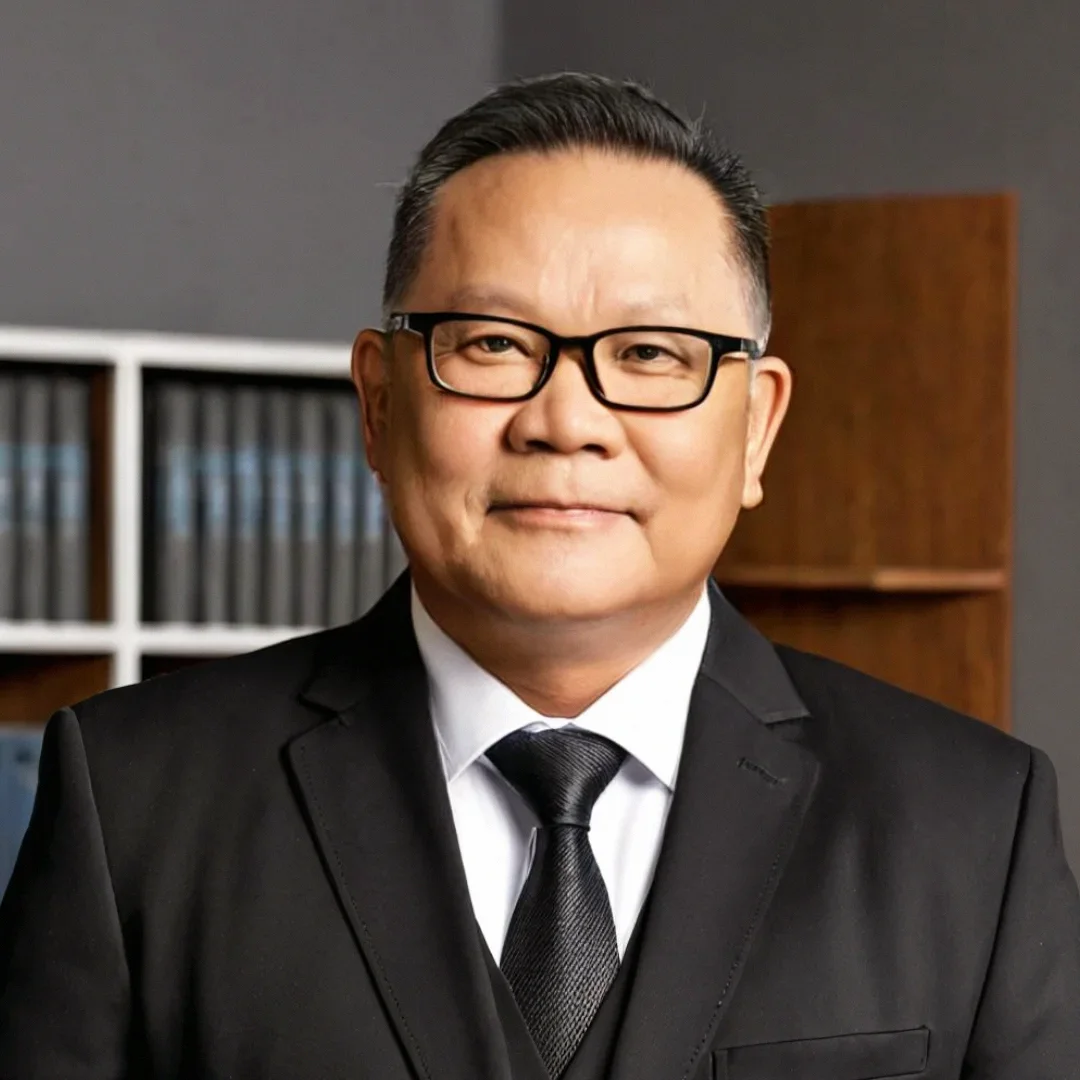Home › Doing business in Davao
Learn more about Doing Business in Davao
Davao City, located in Mindanao, is one of the fastest-growing cities in the Philippines. Known for its business-friendly atmosphere, robust economy, and strategic location, Davao has established itself as a hub for agriculture, trade, tourism, and industry. The city’s leadership, infrastructure, and competitive cost of doing business continue to attract both local and foreign investors.
| Total Population 1.6 million people | GDP Contribution 5.2% of the national GDP | Average GDP Growth 7.5% per year |
| Startup Ecosystem Over 500 startups | Average Salary PHP 350,000/year | Average Office Rent PHP 500/m²/month (CBD) |
Economic Landscape of Davao
1. Key Economic Indicators
Davao City contributes around 5.2% to the national GDP. The city’s economy has shown consistent growth, driven by sectors like agriculture, trade, and services. Davao is the leading producer of various agricultural products, including bananas, pineapples, and coconuts. This, combined with a rapidly developing business environment, makes Davao an ideal place for investment. The city’s focus on developing infrastructure and providing tax incentives further strengthens its position as a business hub.
2. Major Industries in Davao
Agriculture and Agribusiness: Davao is considered the agricultural capital of the Philippines, with large-scale farming operations in crops like bananas, pineapples, and cacao. The agriculture sector drives the local economy, providing employment and boosting exports.
Business Process Outsourcing (BPO): With a growing number of BPO companies, Davao is emerging as a competitive destination for outsourcing services. The city’s English proficiency, lower operational costs, and government incentives attract BPO investors.
Tourism and Hospitality: Davao is increasingly becoming a tourism hotspot, known for its eco-tourism attractions such as Mount Apo, the country’s highest peak. The city offers a rich cultural experience and natural resources, contributing significantly to its tourism industry.
Manufacturing and Retail: As the city’s population grows, demand for manufacturing and retail services has risen. Industries like construction, food processing, and retail continue to thrive, making Davao a key player in the region’s economic landscape.
Legal Environment for Businesses
1. Company Registration Process
Entrepreneurs planning to establish a business in Davao City need to register with the Securities and Exchange Commission (SEC), obtain a Taxpayer Identification Number (TIN) from the Bureau of Internal Revenue (BIR), and secure a Business Permit from the Davao Government. Depending on the nature of the business, entrepreneurs may need to apply for additional permits from agencies such as the Department of Trade and Industry (DTI) or Philippine Economic Zone Authority (PEZA). Registration processes typically take around 1-2 weeks, depending on business type. Learn more about our Company Registration services.
2. Corporate Compliance Requirements
To remain compliant in Davao, businesses must adhere to national labor laws, tax regulations, and environmental standards. Companies must file annual tax returns with the Bureau of Internal Revenue (BIR) and report to the Department of Labor and Employment (DOLE) on employee compensation and benefits. Companies must also ensure compliance with the Social Security System (SSS), PhilHealth, and Pag-IBIG contributions. Environmental regulations enforced by the Department of Environment and Natural Resources (DENR) ensure businesses contribute to sustainable development, especially in relation to waste management and pollution control. Explore our Accounting and Tax services for comprehensive support.
3. Taxation Overview
Philippines’ taxation system includes several key taxes for businesses:
| ➤ Corporate Income Tax (CIT): Corporations in the Philippines, including those in Davao City, are subject to a 25% tax if net taxable income exceeds PHP 5 million and total assets exceed PHP 100 million. A reduced rate of 20% applies to smaller corporations below these thresholds. |
| ➤ Value-Added Tax (VAT): A 12% VAT is applied to the sale of goods, services, and imported items. Businesses with annual gross sales or receipts exceeding PHP 3 million must register for VAT. |
| ➤ Local Business Tax (LBT): Levied by the Davao City government, the LBT is based on the type of business and its annual gross receipts, generally ranging from 0.5% to 3%. It is assessed annually during the renewal of the Mayor’s Permit. |
| ➤ Withholding Taxes: Businesses must withhold taxes on transactions such as employee compensation, rent, and professional services. Rates vary from 1% to 15% depending on the transaction type. |
Political and Regulatory Landscape
1. Government Support for Businesses
Davao’s government plays a crucial role in fostering a business-friendly environment. It provides incentives to investors, such as tax holidays, reduced fees, and other benefits through the Davao City Investment Promotion Center. The city’s administration has implemented policies aimed at improving infrastructure and enhancing the overall ease of doing business. Local government support, combined with the city’s low crime rate and high quality of life, has made it a prime destination for both local and foreign businesses. Our Business Visa services can assist you in leveraging these opportunities.
2. Key Regulations to Consider
Intellectual Property: Davao businesses should ensure that their intellectual property, including trademarks and patents, is registered with the Intellectual Property Office of the Philippines (IPOPHL) to protect their assets. Ask for our Trademark Registration services to ensure your assets are secure.
Labor Laws: Philippines labor laws are comprehensive, covering Employment Contracts, working hours, minimum wages, and employee benefits. All companies must comply with the Labor Code and the Social Security System (SSS), ensuring employees receive proper benefits, insurance, and compensation.
Environmental Regulations: Businesses in Davao City must adhere to strict environmental regulations set by the DENR, focusing on waste management, pollution control, and natural resource conservation. We offer Business Contracts and Compliance Services to help you meet these standards.
Geographic and Demographic Insights
1. Strategic Location and Infrastructure
Davao’s strategic location in Mindanao positions it as a key gateway for trade and commerce in the southern Philippines. Key infrastructure includes:
| ➤ Strategic Location: Located on the island of Mindanao, Davao serves as a natural gateway to the southern Philippines, strengthening its role in trade and regional investments. |
| ➤ Airport: Francisco Bangoy International Airport (Davao International Airport) connects the city to major domestic and international destinations, facilitating tourism and business flows. |
| ➤ Seaport: The Port of Davao is a major maritime hub supporting import and export operations, playing a key role in the logistics chain of the southern Philippines. |
| ➤ Road Infrastructure: Projects like the Davao City Bypass improve traffic flow and reduce travel times, facilitating access to economic and industrial zones. |
| ➤ Public Transport: The city is actively developing its public transport systems to meet growing demand, enhancing urban mobility and supporting economic activities. |
2. Workforce and Urbanization
Davao City boasts a young, dynamic, and highly skilled workforce. Its educational institutions, such as University of Mindanao and Ateneo de Davao University, provide a steady supply of talent in fields like business, technology, and health sciences. The city’s population continues to grow, with urbanization trends boosting demand for housing, retail, and commercial spaces. As a result, Davao City offers ample opportunities for businesses in real estate, retail, and services.
Property Investment in Davao
1. Renting Property
Davao City offers affordable rental rates compared to Metro Manila, with commercial spaces available at prices around PHP 500/m²/month in the central business district. Areas such as Davao Business Park and Buhangin are in high demand for office spaces, while residential properties are available in diverse price ranges to accommodate growing demand from locals and expatriates. Explore our Property Management services to secure your investment.
2. Buying Property
Davao City has become a popular destination for property investment, particularly in mixed-use developments and residential properties. Foreigners can purchase condominium units in Davao, but land ownership is restricted to Filipino citizens or corporations with at least 60% Filipino ownership. Property values in Davao continue to increase as the city’s economy expands and demand for real estate rises. Learn more about our Property Acquisition Services.
3 Success Stories from Davao
1. Kumu: Kumu, a social streaming app, was founded in 2018 in Davao by Roland Ros and Rexy Dorado. The app enables users to stream live, connect, and monetize their passions. Within a short span, it gained significant popularity in the Philippines, reaching over 10 million downloads. With backing from General Atlantic, Kumu raised over $100 million and emerged as a key player in the social entertainment sector, continuing to expand its influence across the nation.
2. Bayanihan Ventures: Founded in Davao, Bayanihan Ventures is a start-up accelerator that launched the “Founder’s Circle” program in 2024. This initiative supports local entrepreneurs by offering a platform to share ideas, receive strategic guidance, and grow their businesses. By fostering collaboration, Bayanihan Ventures has become a central figure in strengthening Davao’s entrepreneurial ecosystem, nurturing innovation and cooperation among local startups.
3. The Lost Bread: Founded in 2015 in Davao by Emil Ongchuan and Patty Marabut, The Lost Bread is a dessert business renowned for its creative offerings such as French toasts and milkshakes. Originally based in a food park in Davao, the business quickly gained traction due to its unique concept. Today, The Lost Bread operates several locations in major shopping malls and offers franchises, showcasing its rapid growth and success in expanding from Davao.
Future Outlook for Davao
Economic Forecast and Development Projects: Davao’s economy is expected to continue its robust growth, with upcoming infrastructure projects such as the Davao City Bypass and improvements to the Davao International Airport. The city is also set to become a key player in the regional logistics and manufacturing industries, thanks to its strategic location and expanding transport networks.
Challenges and Opportunities: Although Davao’s economic prospects are promising, challenges such as urbanization, infrastructure development, and environmental sustainability remain. These challenges present opportunities for businesses in sectors like urban mobility, sustainable development, and green technology. As the city continues to grow, it is expected to be a hub for both business and tourism in Mindanao. Contact us to start your business journey in Davao today.
Ask our Lawyers
Ask your question and receive legal advice from a qualified lawyer
310 client reviews (4.8/5) ⭐⭐⭐⭐⭐
Share information




